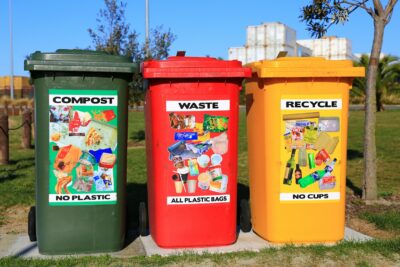Global Waste Management Challenges and the Role of International Cooperation
Understanding the Global Waste Crisis
Addressing these challenges requires a collaborative approach. International cooperation on waste management plays a pivotal role in developing and implementing strategies that can mitigate the adverse effects of waste. By sharing knowledge, resources, and technologies, countries can work together to create more efficient waste management systems. This cooperation is essential for tackling issues that transcend national borders, such as marine plastic pollution and illegal waste trafficking.
The global waste crisis has emerged as one of the most pressing environmental issues of our time. With the rapid growth of urban populations and industrial activities, the generation of waste has reached unprecedented levels. Marine plastic pollution is a particularly concerning aspect, with millions of tons of plastic waste ending up in our oceans each year. This pollution not only affects marine life but also has far-reaching impacts on human health and economic activities. The need for effective and sustainable waste management practices has never been more critical.
Moreover, international cooperation fosters the exchange of best practices and innovations. For instance, countries like Saudi Arabia and the UAE have made significant strides in adopting advanced technologies for waste management. By collaborating with these nations, other countries can benefit from their experiences and adopt similar measures. This exchange of knowledge and technology is crucial for promoting sustainable practices worldwide.
Tackling Marine Plastic Pollution through International Collaboration
Marine plastic pollution is a global problem that requires a coordinated international response. Plastic debris in the oceans poses a severe threat to marine ecosystems and biodiversity. It also affects coastal communities and industries that rely on clean and healthy marine environments. To combat this issue, countries must work together to reduce plastic waste at its source and improve waste management practices.
One effective approach is the implementation of international agreements and initiatives aimed at reducing plastic pollution. For example, the United Nations’ Clean Seas campaign encourages governments, businesses, and individuals to take action against marine plastic pollution. By participating in such initiatives, countries can demonstrate their commitment to addressing this global challenge and promote sustainable waste management practices.
Additionally, technological advancements play a crucial role in combating marine plastic pollution. Innovations in artificial intelligence and blockchain technology can enhance waste tracking and management systems, ensuring that plastic waste is properly disposed of and does not end up in the oceans. Countries like Saudi Arabia and the UAE are at the forefront of adopting these technologies, setting an example for others to follow.
International cooperation also involves financial support and capacity-building efforts. Developing countries often lack the resources and infrastructure needed to manage waste effectively. By providing financial assistance and technical expertise, developed nations can help build the necessary capacity for sustainable waste management in these regions. This collaborative approach is essential for creating a global solution to marine plastic pollution.
Combating Illegal Waste Trafficking through Global Partnerships
Illegal waste trafficking is another significant challenge that requires international cooperation. This illicit activity involves the illegal trade and disposal of hazardous and non-hazardous waste across borders, often resulting in severe environmental and health impacts. Combating this issue necessitates a coordinated effort among countries to enforce regulations, monitor waste movements, and prosecute offenders.
International agreements such as the Basel Convention on the Control of Transboundary Movements of Hazardous Wastes and Their Disposal provide a legal framework for regulating waste trade and combating illegal waste trafficking. By adhering to these agreements, countries can ensure that waste is managed responsibly and sustainably. Cooperation among nations is crucial for the effective implementation of these regulations and the prevention of illegal waste trafficking.
Technological solutions also play a vital role in addressing illegal waste trafficking. The use of blockchain technology can enhance transparency and traceability in waste management systems. By creating a decentralized and tamper-proof record of waste movements, blockchain can help authorities track illegal waste shipments and take appropriate action. This technology can also facilitate collaboration among countries by providing a shared platform for monitoring and managing waste.
Furthermore, international cooperation can support the development and deployment of generative artificial intelligence tools for waste management. These tools can analyze large datasets to identify patterns and predict illegal waste activities, enabling authorities to intervene proactively. By leveraging AI and blockchain technologies, countries can enhance their capacity to combat illegal waste trafficking and promote sustainable waste management practices.
Promoting Sustainable Waste Management Practices Globally
Innovations and Best Practices in Waste Management
Innovations in waste management are essential for promoting sustainable practices and addressing global challenges. Countries like Saudi Arabia and the UAE have been at the forefront of adopting cutting-edge technologies and implementing best practices in waste management. These innovations range from advanced recycling techniques to the integration of AI and blockchain technologies in waste management systems.
For instance, Saudi Arabia has launched several initiatives to promote recycling and reduce waste generation. The country’s Vision 2030 plan includes ambitious targets for waste management, aiming to recycle 85% of waste by 2030. By adopting advanced recycling technologies and engaging the public in waste reduction efforts, Saudi Arabia sets an example for other nations to follow. These initiatives not only contribute to environmental sustainability but also create economic opportunities through the development of a circular economy.
Similarly, the UAE has made significant strides in waste management, particularly in the use of AI and blockchain technologies. The country’s Smart Dubai initiative aims to leverage these technologies to create a more efficient and sustainable waste management system. By using AI to optimize waste collection routes and blockchain to track waste movements, the UAE is improving the efficiency and transparency of its waste management processes. These innovations can serve as a model for other countries looking to enhance their waste management practices.
International cooperation can facilitate the sharing of these innovations and best practices. By collaborating with countries like Saudi Arabia and the UAE, other nations can learn from their experiences and adopt similar measures. This exchange of knowledge and technology is crucial for promoting sustainable waste management practices on a global scale.
The Role of Business and Leadership in Sustainable Waste Management
Business leaders and executives play a critical role in promoting sustainable waste management practices. By adopting responsible waste management policies and practices, businesses can significantly reduce their environmental footprint and contribute to global sustainability efforts. Effective leadership and management skills are essential for implementing these policies and driving change within organizations.
Incorporating sustainable waste management into corporate strategies requires a holistic approach. Business leaders must consider the entire lifecycle of their products and processes, from design and production to disposal and recycling. By adopting a circular economy model, businesses can minimize waste generation and maximize resource efficiency. This approach not only benefits the environment but also enhances business resilience and competitiveness.
Leadership and management skills are also crucial for fostering a culture of sustainability within organizations. By setting clear goals, providing training and resources, and encouraging employee engagement, business leaders can create a workforce that is committed to sustainable practices. Additionally, collaboration with other businesses, governments, and NGOs can amplify the impact of these efforts and promote industry-wide sustainability.
Businesses can also leverage technological advancements to enhance their waste management practices. AI and blockchain technologies offer new opportunities for optimizing waste management processes and improving transparency. By investing in these technologies, businesses can stay ahead of regulatory requirements and meet the growing demand for sustainable products and services. This proactive approach can also enhance brand reputation and customer loyalty, driving long-term business success.
The Importance of Public-Private Partnerships in Waste Management
Public-private partnerships (PPPs) are essential for addressing global waste management challenges. By combining the resources and expertise of the public and private sectors, PPPs can drive the development and deployment of innovative waste management solutions. These partnerships are particularly important for addressing complex issues such as marine plastic pollution and illegal waste trafficking.
One successful example of a PPP is the collaboration between the UAE government and private companies to develop advanced waste management facilities. These facilities use state-of-the-art technologies to process and recycle waste, reducing the environmental impact and creating economic opportunities. By working together, the public and private sectors can achieve greater efficiency and effectiveness in waste management.
International cooperation can also facilitate the formation of PPPs. By sharing best practices and successful models, countries can learn from each other and develop partnerships that are tailored to their specific needs. This collaborative approach is essential for scaling up innovative solutions and promoting sustainable waste management practices globally.
In conclusion, international cooperation on waste management is crucial for addressing global challenges such as marine plastic pollution and illegal waste trafficking. By working together, countries can develop and implement effective strategies that promote sustainable practices and protect the environment. Innovations in AI and blockchain technologies, along with the active involvement of business leaders and public-private partnerships, are key to achieving these goals. As countries like Saudi Arabia and the UAE continue to lead the way in waste management, their experiences and successes can serve as valuable lessons for the global community.
#WasteManagement #InternationalCooperation #SustainablePractices #MarinePollution #WasteTrafficking #AIinWasteManagement #BlockchainTechnology























